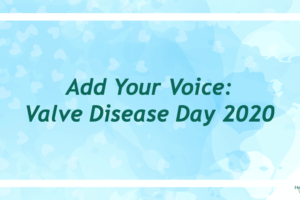To download this page as a PDF, click here.
Many medical societies, health systems, and other organizations have issued guidance documents regarding the status of “elective surgeries” during the COVID-19 pandemic. This includes new guidance from the Administration concerning reopening businesses and services and additional guidance from the Centers for Medicare and Medicaid Services (CMS) on resuming non-emergent, non-COVID procedures.
In an effort to reduce confusion and ensure that patients are receiving the care they need, we are providing recommendations for patients pursuing heart valve surgery or transcatheter procedures (like TAVR) during the COVID-19 pandemic. We will continue to update these recommendations as new information becomes available.
-
- Maintain clear lines of communication with your medical team: This is a confusing time. For patients with cardiac conditions that may require valve replacement or repair, it is important to discuss all options with your medical team and to ask questions to ensure that you have the most up-to-date information. These questions can include:
-
- What is your facility’s policy regarding elective surgeries? Have these policies changed in the past week?
- What is your facility’s current capacity for surgical and pre-surgical patients? Do you anticipate this changing in the next week or two?
- Given my condition, what is a realistic timeline for me to receive proper treatment that will maximize my personal health outcomes?
- Can a family member or care partner accompany me to my procedure?
- Can my procedure be done on an outpatient basis to limit my potential exposure to the virus?
- What information and resources are you sharing with your other patients that would be helpful for me right now?
- What is your facility’s social distancing policy for medical professionals? How will this affect my surgery and/or my stay in your facility?
- Does your facility have an adequate supply of Personal Protective Equipment (PPE) for your staff?
- How do state or local health department recommendations affect the timing and nature of my care?
- If you have been deemed “urgent” or “emergent” for heart valve repair or replacement by your medical team, do not wait to seek appropriate medical care: If your physician has determined that you are urgently in need surgery (ex. patients with severe degenerative mitral regurgitation), you should seek care at your health care facility as planned. Facilities have protocols in place to triage and treat patients to reduce risks from COVID-19. While these are uncertain times, your long-term health is of the utmost importance and should not be delayed.
- If you have a health care emergency (ex. chest pain, severe shortness of breath), call 911 and seek emergency medical care, including through the emergency room: The guidelines concerning elective medical procedures do not apply to medical emergencies. If you are experiencing a health emergency, it is important to seek medical care from your local emergency department. Avoiding immediate medical care when needed may cause harm and impact your long-term health.
- Stay in touch with your medical team even if you can’t meet them in person: It can be intimidating to decide when to seek medical care if you believe your health status has changed. Many physicians are engaging in telehealth to stay in touch with patients. For anyone who requires a heart valve procedure, you should feel free to call your medical team to inquire about your changing status and how it affects your treatment. This is especially true for patients who previously had no symptoms or mild symptoms, but their symptoms increase during the duration of the COVID-19 outbreak.
- Do not be surprised if certain minor treatment protocols change leading up to your preoperative assessment and/or surgery: As a result of COVID-19, many facilities have changed their protocols regarding how patients receive their preoperative assessment, any associated surgery, if needed, and any recovery. This may mean that other members of the medical team, such as nurse practitioners and physician assistants, take a more active role in your evaluation and care. These changes are designed to give you more complete medical care. Always communicate any questions or concerns you might have with your medical team concerning your care coordination.
Reflects guidance as of 4/24/2020



